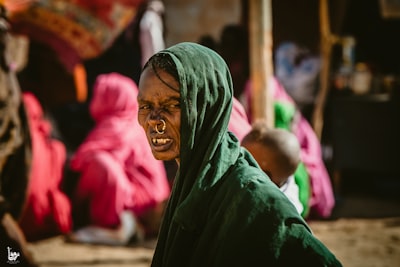Understanding the Darfur Crisis in 2025: War Crimes, Genocide, and Humanitarian Disaster
Western Sudan’s Darfur region, once the center of international attention in the early 2000s, is again gripped by turmoil. In 2025, Darfur faces surging violence, staggering civilian casualties, and new evidence of war crimes and genocide. This article explores the ongoing crisis, focusing on war crimes in Darfur, the impact on civilians—particularly women and children—and practical ways the international community and individuals can respond.
The Latest: War Crimes and Genocide Accusations in Darfur
Key phrases: Darfur war crimes, Sudan genocide 2025, ICC investigation Sudan, RSF Sudan war crimes
The International Criminal Court (ICC) has recently declared there are “reasonable grounds” to believe that systematic war crimes and crimes against humanity are being perpetrated in Darfur. The Sudanese conflict between the national army and the Rapid Support Forces (RSF), which reignited in April 2023, has led to allegations including ethnic targeting, sexual violence, and genocide. The U.S. has formally determined that the RSF and allied militias have committed acts of genocide—a rare but significant legal distinction.
Key Questions:
- What constitutes a war crime or genocide under international law?
- How does the ICC gather evidence in active war zones like Darfur?
- Who are the RSF and what is their role in the conflict?
What’s Fueling Sudan’s New Humanitarian Catastrophe?
Related keywords: famine in Sudan 2025, child malnutrition Darfur, aid blockade el-Fasher, humanitarian crisis Sudan
Beyond the courtroom, the humanitarian impact is staggering. More than 12 million people have been displaced; over 150,000 have died in just two years. UNICEF recently reported an unprecedented spike in severe acute malnutrition among children—over 40,000 cases in early 2025 alone, double the prior year. Humanitarian aid is repeatedly blocked, most notably in areas like el-Fasher, where an RSF siege has cut off essential supplies.
Main factors causing the crisis:
- Targeted attacks on hospitals and humanitarian convoys
- Deliberate starvation tactics and water shortages
- Ethnic-based violence and sexual assault
- Regional instability driving refugee flows into Chad and beyond
Why Is the International Community Struggling to Intervene?
Emerging issues: UN role in Sudan, prosecuting war crimes, international response to famine
Global institutions, including the UN and ICC, have struggled to halt the violence or ensure justice for victims. Legal investigations are slow and often hampered by ongoing fighting, restricted access, and political gridlock in the UN Security Council. Aid agencies warn that without open corridors, millions—children especially—will remain at risk of starvation and disease outbreaks like cholera.
Ongoing Debates:
- Should the UN deploy peacekeepers or increase sanctions?
- How can evidence from survivors be safely collected and used in court?
- What responsibilities do foreign governments have in response to genocide?
How Can You Help: Resources and Calls to Action
Keyword variations: how to help Darfur, donate to Sudan famine, supporting Sudanese refugees
If you’re concerned about the Darfur crisis or want to make a difference, consider these steps:
- Support reputable humanitarian organizations providing food, water, and medical aid (e.g., UNICEF, Doctors Without Borders, International Rescue Committee)
- Raise awareness by sharing vetted information and supporting advocacy campaigns
- Contact your elected representatives to urge stronger international action for Sudan
- If in a position to do so, consider helping Sudanese refugees resettle or access legal and community support
FAQ: Darfur Crisis 2025
Q: What is happening in Darfur right now?
A: Ongoing armed conflict, massive displacement, targeted ethnic violence, and famine have created one of the world's worst humanitarian emergencies.
Q: What groups are responsible for the violence?
A: The Sudanese Armed Forces and the Rapid Support Forces (RSF) are central to the fighting. UN and US sources have accused the RSF and allied militias of war crimes and genocide.
Q: Can outside pressure or donations really make a difference?
A: While solutions are complex, international advocacy and humanitarian support remain essential for saving lives and holding perpetrators accountable.
Conclusion: The Stakes for Darfur—And the World
As 2025 unfolds, the crisis in Darfur stands as a sobering reminder of the world’s ongoing struggle to prevent war crimes and genocide, even decades after international pledges of “never again.” Whether it’s through advocacy, humanitarian donations, or spreading awareness, there are concrete ways for individuals and governments alike to support the people of Sudan and demand accountability for atrocities.
For further reading:
- UN OCHA Crisis Updates on Sudan
- International Criminal Court: Situation in Darfur
- UNICEF’s Appeal for Sudan
Stay informed. Stay engaged. Lives depend on it.

Comments
No comments yet. Be the first to comment!